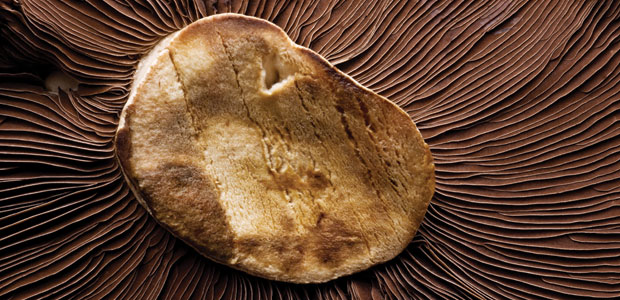Advertisement
Incredible Mushrooms
Medicinal, nutritional, and delicious, too!

Not a fruit; not a vegetable; not even a plant. Mushrooms are highly nutritious fungi that have been used for millennia in folk medicine to treat all that ails.
Today thousands of mushroom species have been identified worldwide; however, only approximately 25 of these are cultivated for human consumption.
While edible mushrooms come in many shapes, sizes, and colours, the one thing they all have in common is a multitude of health benefits. Packed full of health-promoting nutrients and potent free radical-fighting antioxidants, mushrooms’ long history of healing isn’t surprising.
Antioxidant dense
One antioxidant that mushrooms are particularly rich in is ergothioneine, an amino acid that can only be obtained from the diet. When not enough is consumed, cells become more susceptible to damage caused by oxidative stress.
Of the mushrooms studied, researchers from the Pennsylvania State Mushroom Research Laboratory found that exotic mushrooms such as shiitake and maitake came out on top, containing approximately 40 times more ergothioneine than wheat germ.
Although the white button mushroom was found to contain the least amount of this health-promoting amino acid, it still proved to be a significant source. It contains 12 times the amount of ergothioneine found in wheat germ and four times the amount in chicken liver.
Further supporting mushrooms’ status as antioxidant powerhouses, another study found both portobello and cremini mushrooms’ overall antioxidant activity level to be comparable to such colourful vegetables as broccoli, red peppers, and carrots.
Boosts immunity
Antioxidant-dense mushrooms are also proving to be useful in providing nutritional support to cells fighting off invading pathogens.
In a scientific review, researchers found that the metabolites contained within mushroom cell walls appeared to stimulate different cells of the immune system, including T and B cells, macrophages, and natural killer cells.
Although results are still preliminary, researchers believe the boost mushrooms provide to the immune system may be useful in treating and preventing a number of illnesses, including rheumatoid arthritis, atherosclerosis, human immunodeficiency virus (HIV) infection, and cancer.
Fights cancer
In one population-based study researchers found that Chinese women who ate 10 g of fresh mushrooms and 4 g of dried mushrooms daily reduced their risk of developing breast cancer by 64 percent. Women who drank green tea in addition to eating mushrooms reduced their risk even further. Reduced risk was seen in both pre- and postmenopausal women.
The phytochemicals found in mushrooms are thought to be responsible for this anticancer effect. One of these phytochemicals, conjugated linoleic acid (CLA), has been shown in studies to inhibit the estrogen-producing enzyme aromatase. Excess estrogen is believed to play a role in the development of breast cancer in postmenopausal women.
The CLA found in mushrooms has also shown promise in providing protection against prostate cancer. Researchers from the City of Hope’s Beckman Research Institute found that when consumed, white button mushrooms were able to decrease the rate of prostate tumour growth as well as induce death in prostate cancer cells in mice.
A source of vitamin D
In addition to their disease-fighting abilities, mushrooms are an excellent source of many essential nutrients, including dietary fibre, riboflavin, niacin, and even vitamin D.
Studies have found that when exposed to either natural or artificial UV light, a plant sterol found in mushrooms converts into vitamin D2.
Vitamin D plays an essential role in the maintenance of strong bones, and is thought to support the immune system and ward off diseases such as cancer.
A 100 g serving of white button mushrooms contains 4 percent of the recommended daily value of this sunshine vitamin, while the same serving size of cooked shiitake provides 13 percent of the daily recommended value.
Mushroom 101
Next time you are out shopping for mushrooms, go beyond the familiar white button or portobello and try one of the following.
Enoki
Also known as enokitake, enoki mushrooms have long thin stems and small white caps. These sweet-tasting mushrooms grow in bunches and are traditionally used in soups.
Maitake
The wavy folds on the cap of this medicinal mushroom resemble that of the brain. Fabled for its immune-boosting prowess, the maitake mushroom makes a tasty addition to most culinary dishes.
Oyster
Oyster mushrooms are cream coloured with fan-shaped caps and an anise-like scent. A natural source of the cholesterol-lowering statin drug lovastatin, oyster mushrooms are good for the heart.
Porcini
Also known as penny bun, the porcini mushroom has a short white stalk and a wide reddish brown cap. It can be purchased fresh or dried and is a popular ingredient in Italian pasta and risotto recipes.
Shiitake
A popular Asian mushroom commonly used in stir-fries and miso soup. The shiitake mushroom has a mild texture when fresh that becomes stronger when dried.
Buy
Cultivated mushrooms such as cremini and portobello are available year round. Wild mushrooms are in season in either the fall or spring, depending on the species.
When buying fresh mushrooms avoid ones that show signs of damage, such as bruising, broken caps, or wrinkled skin.
Store
For best flavour consume fresh wild mushrooms shortly after purchasing. Cultivated mushrooms will keep for up to three days when stored in the refrigerator in a brown paper bag.
Prepare
As mushrooms easily absorb water, avoid soaking them. Instead, lightly rinse mushrooms under running water or clean them with a damp cloth. Remember, mushrooms are delicate, so handle them gently when preparing.
Eat
Take advantage of mushrooms’ many health benefits by eating them regularly.
Did you know?
Some mushrooms are safe to eat but don’t taste very good. Red reishi, for example, is hard and bitter and not often used in cooking. Remember that you can still receive the immune enhancing benefits from these less tasty fungi by looking for mushroom supplements at your favourite health food store.
Recipes





